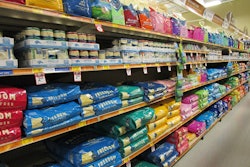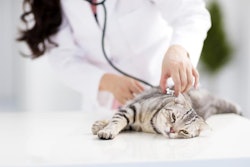
A court in Shanghai, China found the vendor of allegedly counterfeit Royal Canin cat food to be guilty of defamation against the Alibaba Group, parent company of Taobao, reported Alizila, the news hub for Alibaba. The vendor had sold the cat food on Taobao, an online marketplace in China, starting in January 2015.
Details of the counterfeit cat food allegations
The Chinese court ordered the vendor to pay CNY 120,000 (US$18,000) to Alibaba in the civil lawsuit, which was initiated on March 3, reported Alizila. Alibaba had accused the defendant of damaging the reputation of the e-commerce pet food and other products marketplace.
The alleged counterfeit cat food was discovered during a routine mystery shopper purchase of the product in May 2016. Taobao representatives sent the product to Mars Petcare, the owner of Royal Canin, for inspection. Although the packaging and verification codes proved to be valid, Mars’ inspectors found evidence of tampering. Their analysis revealed that the product in the bags was not a real Royal Canin product.
On October 12, 2016, Shanghai Municipal Public Security Bureau agents arrested the defendant. The agents seized the alleged counterfeit cat food for suspected trademark infringement.
5 facts about China’s growing pet food market
With China’s growing middle class and the resulting increased disposable income, both domestic and international pet food companies are beginning to watch and move into China’s rapidly growing pet food market. Petfood Industry reported these key facts about China’s pet food market.
1. China leads Asia-Pacific
China’s pet ownership outpaces Asia-Pacific numbers, as 25% of the population owns dogs and 12% of the population owns cats. For the Asia-Pacific region, 20.9% of the total population owns dogs and 11.1% owns cats.
2. Mega-cities top pet ownership
Shanghai and Beijing, China’s two largest cities, account for much of that pet ownership, with 24% of Shanghai’s residents owning dogs and 11% owning cats. Twenty-five percent of Beijing residents own dogs, while eight percent own cats.
3. China approaching global average
Considering that 29.9% of the total global population owns dogs and 21.8% owns cats, China’s pet food market growth has put it on track to become a pet food superpower in the global pet market, as ownership rates approach the global average.
4. Economic boom fuels pet food industry
Disposable income in urban China households has gone up each year since 2010, and continues to increase. This means more people are looking to pets as companions, and those people are willing and able to spend more on their dogs and cats than ever before.
5. Strong online pet food market
China’s pet food market consumers’ online presence is stronger than in more developed markets. Thirty-eight percent of the country’s pet food is purchased online, according to Fung Global Retail and Technology data, compared to 7% in the US for total pet care sales, including pet food.

















